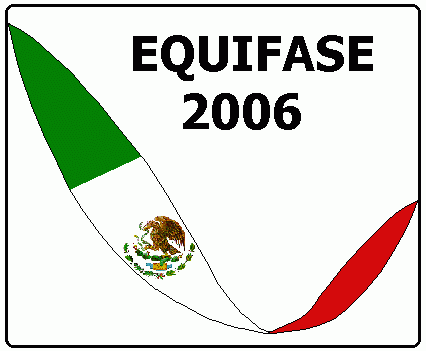
VII Iberoamerican Conference on Phase equilibria for Process Design
Morelia, Michoacan (MEXICO), October 21 – 25, 2006
Plenary Lecture
"Effective intermolecular potentials and theoretical equation of state of pure substances and solutions"
Fernando del Río
Laboratorio de Termodinámica, Universidad Autónoma Metropolitana-Iztapalapa
A.P. 55-534, México 09340, DF, México
Abstract
For a long time, effective potentials have served as model molecular interactions to account for the thermodynamic properties of pure fluids and solutions. Here we shall develop the concept of effective potential and apply it to a variety of properties in the gaseous and dense-fluid states. We show how a particularly simple kind of potential, named Approximate Non-Conformal, ANC, can be used effectively to calculate accurately a variety of thermodynamic properties of fluid substances. We shall present evidence for properties in the gaseous state (second and third virial coefficients, zero-pressure gas viscosities), for the liquid-vapour coexistence and critical properties (Tc, Vc and Pc), for excess functions of mixing and others. Most properties are calculated within estimated experimental errors. Applications of the ANC theory will be illustrated with a selection of examples concerning a few of the several dozen substances for which the approach has been successfully developed. The molecular features whose effects have been incorporated thus far into the ANC effective potentials are dispersion, electrostatic (dipolar and quadrupolar) and many-body interactions, and steric features such as elongation. The main characteristics of the theory will be highlighted by referring to a selection of substances from those with simple spherical interactions (noble substances) to chain molecules (perfluoro-alkanes) and to polar molecules.